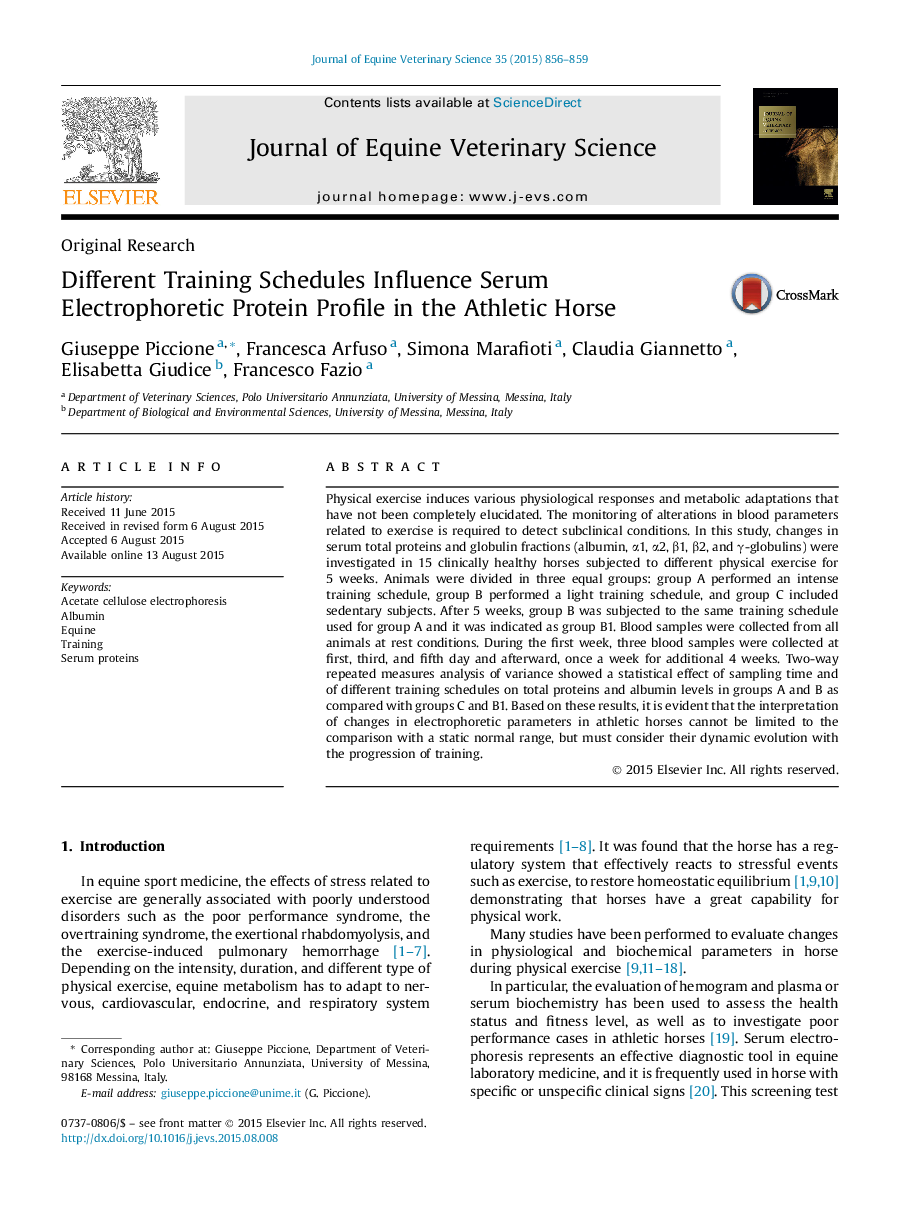| Article ID | Journal | Published Year | Pages | File Type |
|---|---|---|---|---|
| 2394831 | Journal of Equine Veterinary Science | 2015 | 4 Pages |
Abstract
Physical exercise induces various physiological responses and metabolic adaptations that have not been completely elucidated. The monitoring of alterations in blood parameters related to exercise is required to detect subclinical conditions. In this study, changes in serum total proteins and globulin fractions (albumin, α1, α2, β1, β2, and γ-globulins) were investigated in 15 clinically healthy horses subjected to different physical exercise for 5 weeks. Animals were divided in three equal groups: group A performed an intense training schedule, group B performed a light training schedule, and group C included sedentary subjects. After 5 weeks, group B was subjected to the same training schedule used for group A and it was indicated as group B1. Blood samples were collected from all animals at rest conditions. During the first week, three blood samples were collected at first, third, and fifth day and afterward, once a week for additional 4 weeks. Two-way repeated measures analysis of variance showed a statistical effect of sampling time and of different training schedules on total proteins and albumin levels in groups A and B as compared with groups C and B1. Based on these results, it is evident that the interpretation of changes in electrophoretic parameters in athletic horses cannot be limited to the comparison with a static normal range, but must consider their dynamic evolution with the progression of training.
Keywords
Related Topics
Life Sciences
Agricultural and Biological Sciences
Animal Science and Zoology
Authors
Giuseppe Piccione, Francesca Arfuso, Simona Marafioti, Claudia Giannetto, Elisabetta Giudice, Francesco Fazio,
